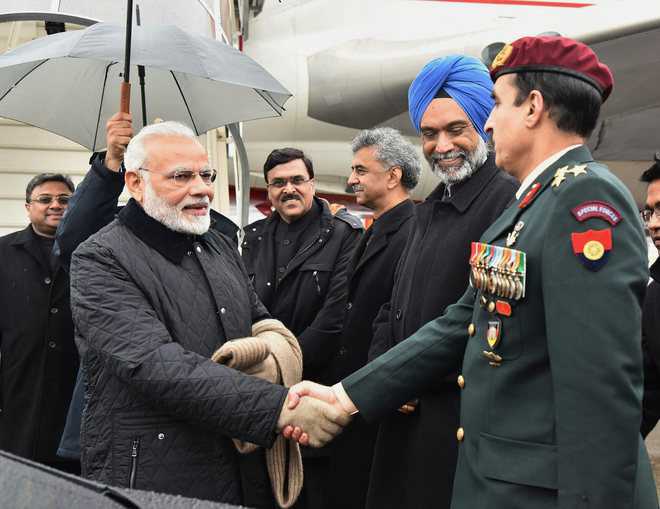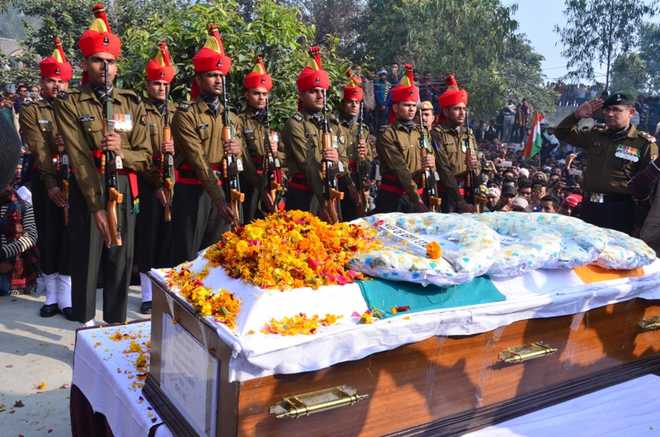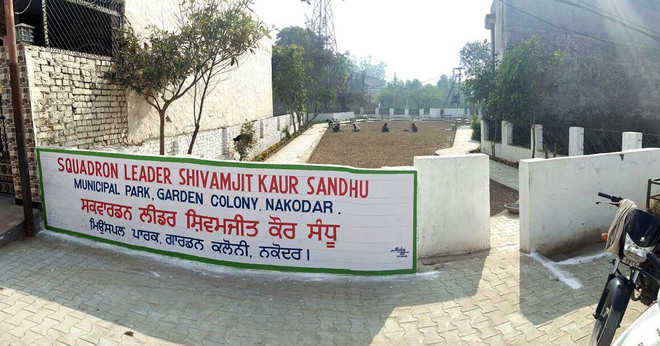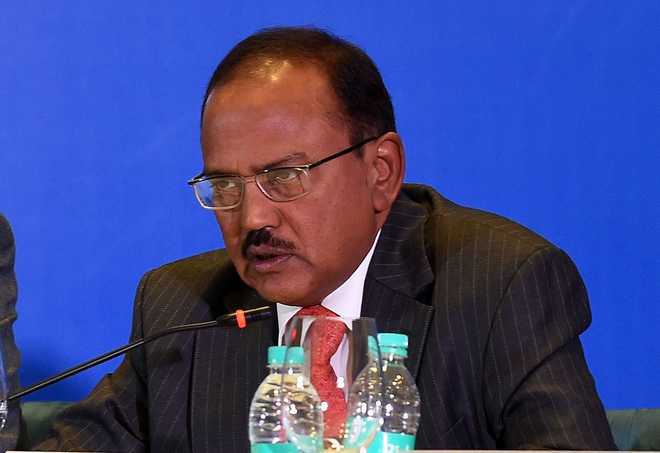Creeping militarisation of foreign policy discourse
 Ravi Parkash
Ravi ParkashHarish Khare
WE have been fortunate to have had a very large number of distinguished military leaders. There was a General KM Cariappa to begin with; then we had Marshal of the IAF Arjan Singh, General Sam Manekshaw, General K Sundarji, General Ved Malik, General S Padmanabhan. Other chiefs were not insubstantial leaders of men, either. Each led the force in the trying and exacting contexts of his time. But, perhaps, none was heard so often and so loudly as the present Chief, General Bipin Rawat. And, it needs to be noted that he remains unrebuked by the civilian-political leadership for his garrulity.In recent days, he hit the headlines with regularity. More than a month ago, he took it upon himself to respond to Pakistani army chief General Bajwa’s formulations before the Pakistani parliament. It was a significant speech, given the power-sharing arrangement in Pakistan. Its moderate tone and its expression of hope for some kind of normalcy between India and Pakistan were at variance with our officially-inspired understanding that it is the Pakistani generals who have acquired an institutional interest in enmity with India. It was too cute, too neat to be true, for our taste. The Ministry of External Affairs spokesperson, quietly and professionally, dealt with General Bajwa. Still, a few days later, inexplicably, our own Army Chief felt that he was called upon to rubbish the Pakistani General’s contrived overture. And then, a few days ago, General Rawat allowed himself to comment at a press conference on the educational system in Jammu and Kashmir and the imperfections and inadequacies of the textbooks in the government schools in the state. The good general pontificated on the “madarsas and masjids”. It was as political a statement as it could be; the General had chosen to stray into the politicians’ domain. And inevitably, invited the malicious politicians’ retort. Not at all a pretty sight. Curiously enough, there has been no indication as to what the South Block thinks of the Indian Army Chief’s loquaciousness. On the other hand, the usual suspects have started making the usual noises, in the print and on the social media, in defence of the Chief.Admittedly, considerable merit can be conceded in what the General had to say about the contents of the textbooks in Kashmir and about the nature of the larger process of ‘radicalisation’ in the Valley. But the pertinent point has to be that the offending textbooks were not introduced this week. For better or worse, these books have been part of the school curriculum for a while. And again, for better or worse, the ruling party at the Centre has been in power as a coalition partner in Jammu and Kashmir for many years. There is no public record of the BJP, either at the Centre or in the state, having made an issue of the unsuitability of these textbooks.If there is so overwhelmingly self-evident justification in the Chief’s observations, why have the “nationalist” voices kept quiet all these years? The vigilant and zealous deshbhakts must be very familiar with these “unacceptable” textbooks, yet they continue to be part of a self-serving power-sharing arrangement in the state. It must be presumed that the Chief had first raised this matter of Jammu and Kashmir’s education system within the inner councils of the national security apparatus. He possibly felt unattended and unsatisfied, and thought strongly enough about it to go public; whatever the context, he crossed a line, forcing everyone to take a position. However, there is another, old-fashioned name for this: agenda setting. That is not a one-off affair. For some time now, the Army Chief has regularly articulated very strongly— and, very bluntly — on the difficulties in our relationships with China and Pakistan. He has casually suggested crossing the border and has talked of calling Pakistan’s nuclear bluff. Granted, soldiers are not diplomats; granted, they are not well versed in the art of nuances and subtleties of diplomacy; but, it can well be asked, pray, why encroach upon the Foreign Office’s territory. The General’s volubility has been in direction proportion to the marked reticence, almost radio silence from the authorised managers and professional caretakers of the bluff and bluster of national security. Most mysteriously, we do not hear from the Raksha Mantri or the External Affairs Minister on these vital issues of national security. On the other hand, we have a political dispensation that believes in and advocates a “strong” India; it projects itself as being more muscular than others in matters of national security and defence. It is not averse to encashing electorally and politically the soldier’s sacrifice and martyrdom. During the recent elections in Uttar Pradesh, Himachal Pradesh and Gujarat, “surgical strikes” became part of the politicians’ narrative.It ought to be clearly understood that even the most professional and most detached solider is not exactly a robot. He can size up the political crowd and its weaknesses — and, can most definitely smell the politician’s need for “success” against this or that “enemy”. What happens if an ambitious general senses the politician’s dependence upon the soldier for an electoral coup? What happens if the generals and the admirals begin to think of themselves as indispensable to a regime’s political fortunes? For now, it has suited the government’s electoral calculations to talk up the soldier. In turn, the soldier is fired up. The air is full of violence, hostility and aggression.A stage may come when it may not be all that easy to roll back this militarisation of our political narrative; it may not be easy to ignore the generals’ demarche. When a Nitin Gadkari dares to talk sense on the Navy’s demand for land in South Mumbai, the poor minister gets excoriated for wanting to deny the armed forces what is due to them.When claims made in the name of national security get pushed up on top of the national attention, a certain distortion creeps in. As it is, without our wanting, we have ended up countenancing a militarisation of our foreign policy and diplomacy. Are we comfortable with the idea of a general usurping the political leader’s prerogative? At the end of the day, it is difficult not to feel uncomfortable about the space and the visibility the Army Chief has come to command.





































































